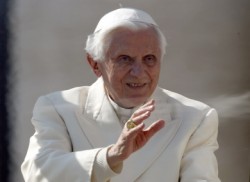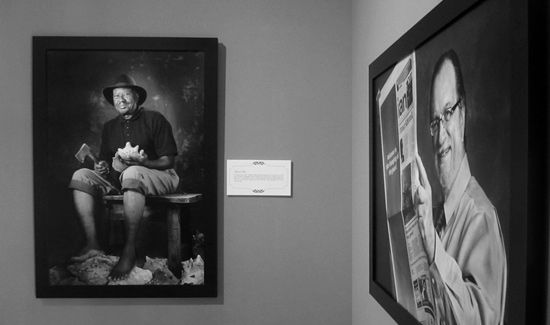
The philosophy that underlines the whole pastoral mission of the Church of Vatican II, including the council’s approach toward ecumenism and religious freedom, seems based on H.L.A. Hart’s theory of legal positivism which has heavily influenced Western society law. Hart’s underlying theory for law is based on the idea that rules should be obeyed – not because there is any threat of penalty behind them – but because rules themselves functions as, or supply, the reasons for acting. Hence, one can still be under obligation to follow a rule without being under any threat of penalty for disobeying that rule. This was the rational behind the eventual decriminalization of homosexuality and abortion.
In identical fashion the Church has adopted the “medicine of mercy rather than the arms of severity” policy on the grounds, not only that it is against human dignity to force someone via threat of penalty to obey a law, but on the assumption that the inherent power of truth alone is sufficient to change a person’s behavior (Dignitatis Humanae 1-2). The post Vatican II notification Post litteras apostolicas of 14 June 1966 expresses this renunciation of authority in the clearest possible way by stating, for example, that the Index of Forbidden Books remains morally binding, but no longer has the force of ecclesiastical law with its attendant censures.
This principle, whether it applies to the Church or state, or to legal or moral issues seems to me illogical for if any law – divine or secular – were enacted (by God or the state) without any real threat of punishment behind it, it would seem no law at all. In what way, for example, could that law’s violation be considered wrong? One might say that one has acted morally or legally wrong in violating a certain moral or civil law but this would merely be a subjective opinion (perhaps that of the lawmaker) which means nothing to the person who suffers no adverse (spiritual or physical) effects for violating that law.
Without any threat of penalty or suffering no one’s conscience would accuse him of disobeying the conscience’s command to do good and avoid evil. And this would not be because the person’s conscience has been deliberately suppressed. In effect, words like “duty” and “obligation” would become meaningless. Suffering, sin and the Cross would become meaningless. Logically, one would have to eliminate both our secular prisons and the reality of Hell for they too would become empty concepts. All laws, therefore, – whether divine or secular – need at least the real threat of sanctions behind them not only to be effective but to be justified. If God’s prohibition to Man against eating of the fruit of the Tree of Knowledge of good and evil came without any real threat of penalty we would all be living in the Garden of Eden today in spite of the sin of our first parents. It is true that one should always act primarily out of love of God and His Commandments, but the bible also reminds us that “fear of the Lord is the beginning of wisdom”(Psalm 111).
This setting up of the principle of “mercy as opposed to severity” at Vatican II ignores the fact that in the mind of the Church the condemnation of error is itself a work of mercy, since by pinning down error those laboring under it are corrected and others are preserved from falling into it. The further optimistic assertion that error will recognize and correct itself, is difficult enough to accept in theory; but it is also bluntly refuted by facts. Since Vatican II, men did not change their minds regarding their errors, but became entrenched in them instead, and gave them the force of law. The public and universal acceptance of these errors became obvious with the adoption of easy divorce, contraception, homosexuality, homosexual marriage, embryonic stem cell research and abortion. The behavior of Christian peoples was entirely altered thereby and their civil legislation, until recently modeled on canon law, was changed into something completely profane no longer having a shade of the sacred about it.
The “mercy”principle inherently allows the Church to distinguish – in a destructive way – between not punishing immoral acts and proscribing them. There is a difference between, for example, not punishing abortions and prescribing that every handicapped child must be aborted. The second one is what is traditionally called an unjust law which goes against divine and natural law and must not be obeyed. What the”mercy” principle allows the church to do is to claim that if abortion should be punished it should be so not because abortion is a sin, but rather to protect the life of the unborn. Similarly, the church might hold under the “mercy” principle that homosexual acts, which certainly are immoral, should not be punished, but that homosexual unions (“homosexual marriage”) should not be legalized or equaled to traditional marriage because this would be a discrimination against traditional marriage which by its nature is reproductive and thus of public interest. This reasoning is why almost all of our Catholic politicians advance and promote the decriminalization of homosexuality and abortion in law and why the vast majority of our bishops do not speak out against or censor them. In a sense the “mercy principle” allows a person to live a double life – a private life in which one supposedly opposes the evil of abortion and homosexuality and a public life in which they allow and even promote these evil in others.
The conscience, being one and indivisible, however, does not permit the acting out of parallel lives. As Scripture has it: “no man can serve two masters” (Matt. 6: 24). The fallacy in the first example is that abortion not only harms the person being murdered, it harms the person who commits the murder as well as the common good. Common sense dictates that when any gravely immoral policy finds itself into law, it begins to incrementally, surreptitiously, almost invisibly, impose itself on society by both coercion and force – marginalizing in the process both religion and those of religious faith. In the second example, one can clearly see that the decriminalization of homosexuality led directly to the legalization of homosexual marriage. And logically so. The secular world noticed and took advantage of, what the Church failed to see i.e. that if homosexual acts are not punishable, in what way can they be considered wrong? If they are not wrong, why can’t they share in the definition of marriage? In reality, however, homosexual acts discriminate against traditional marriage just as much as do homosexual unions ( marriage) – both thwart the natural generation of life and both are not in the public interest.
Ultimately, one can not separate private sin from the public harm it does any more than one can separate his own private life from his actual public life where morality and faith are concerned. Essentially there is only one life – a life in Christ or a life lived apart from Christ. Hence it seems to hold also that there can not be any separation of Church and state for this would be also be conducive to living a double life.
The Post Vatican II magisterium has often sought to clarify that the secularity and religious neutrality of the state does not mean moral neutrality. But how can this be? Indeed must not a religiously-neutral nation necessarily be morally neutral? Not all religions subscribe to the same set of moral values. Even among Christians there are various Protestant sects that champion as morally permissible, the evils of abortion, homosexuality, divorce, polygamy etc. To maintain its religious neutrality without being morally neutral, a state, to be fair, would have to include these obvious moral evils which they, in fact, do. Is this what the church championed at Vatican II?
Now if the state were to uphold objective morality, as the Catholic Church maintains and understands it to be, the state would necessarily have to affirm Catholicism as the state religion and condemn religious freedom on the grounds that the First Commandment (which is morally objective and engraved on every human heart) forbids the worshiping of all false Gods. It should be noted in this regard that while Jews and Muslims claim to believe in the God of Abraham, they do not believe that Jesus Christ is God. And as Jesus emphasized “Those who reject me, reject also him who sent me” (Luke 10: 16).
In a religiously neutral state how does one define morality? Does it come from God? If so whose god? Do politicians determine what morality means or do the people determine it in referendums? Is it something composed of religious and atheistic elements? Is it something purely subjective? Obviously, in a religiously neutral state there can be no clear definition of morality for morality would mean different things to different people. True morality, if it did exist, would be something purely accidental and not something implemented by design. The universal good cannot be something ambiguous, however, without also being relative. For the relativist, there is only tolerance. The result is anarchy – the law of the jungle – which is no law at all. This is what we are seeing today.
Since the separation of the church and state has come into common currency, objective morality has logically become a thing of the past. The reason for this is the “Hart philosophy” which found its way both into our legal system and the church (since Vatican II) . This led to a separation of sin from punishment, a separation of legal law from moral law, a separation of the public life from the private life, and a separation of church from state. Ultimately, it produced a separation of man from himself and, a separation of man from God.
Morality now means nothing. In the 2005 Jean-Paul Labaye case, for example, which legalized “swinging” throughout Canada, Justice Beverley McLachlin rendered morality in criminal law a non-issue. She wrote in her majority opinion: “Indecency has two meanings, one moral and one legal. Our concern is not with the moral aspect of indecency, but with the legal.” On this basis she eliminated the “community standard of tolerance” test for indecency as irrelevant and replaced it with a “harm” test whereby harm was, in effect, virtually impossible to prove. McLachlin affirmed this by arguing that transmitted diseases are “conceptually and causally unrelated to indecency.”
The West is now under the influence of legal systems that emphasizes terms like progress, freedom, liberty, equality, justice and peace. But these concepts are decidedly vague and largely confined to party politics where they are open to all kinds of abuse. Moral consciousness is now, in the words of Pope Benedict XVI, “purely a species of functional rationality. In such a world where calculations are the norm, it is the calculations of consequences that ultimately determines what is moral and immoral.” Nothing is good or evil in itself. There are no absolute values. Democracy is now perceived as an ethically neutral political regime that is able to embrace values of differing moral perspectives and opposing world views. The result has been an increase in violence, the escape into drugs, a growth in corruption, the hollowing-out of human dignity through genetic manipulation, human trafficking and other new forms of slavery. On a global scale one can also add to this list the inequality in the distribution of goods, the depletion of the earth’s resources, and the increase in poverty, famine, and illness.
The “mercy” principle has detrimentally effected every aspect of church life as well. It led to the doctrine of religious freedom and the separation of church and state which in turn led to the belief and practice among the “faithful”of moral relativism. It opened up the door to ecumenism which quickly turned into syncretism and an energetic search for a new world order (sans religion).
Perhaps, most importantly, it jettisoned discipline which prompted Pope Paul VI in 1968 to state: “The Church finds herself in an hour of anxiety, a disturbed period of self-criticism, or what would even better be called self-demolition [auto-destruction]. It is an interior upheaval, acute and complicated, which nobody expected after the Council. It is almost as if the Church were attacking itself. We looked forward to a flowering, a serene expansion of conceptions, which matured in the great sessions of the council. But … one must notice above all the sorrowful aspect. It is as if the Church were destroying herself.”
The church will continue to self-destruct unless Vatican II is revisited. Members of the church hierarchy do not seem to understand the exceptional seriousness of the crisis that has afflicted the Church in the past fifty years – the result of decades of liberal exegetical, theological, and “pastoral” creativity in the name of the Second Ecumenical Vatican Council. For the good of the Church and for the salvation of souls there needs to be a careful, scientific analysis of the Council in general, of each of its documents, of each of the themes in these documents and of the immediate and remote sources of these themes. This analysis should be conducted in a deliberate and public way taking into account all the historical, patristic, canonical, philosophical, liturgical, theological, exegetical, sociological, and scientific elements. Only in this way does the church stand a chance of being restored, renewed and purified. Only in this way can the church become a vehicle for re-Christianizing the world.
By: Paul Kokoski


